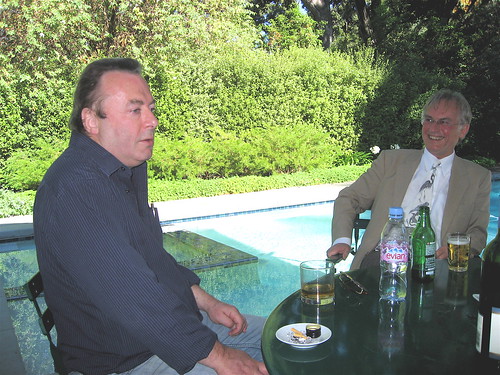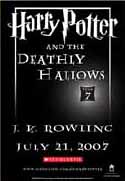But Blake Taylor's recently published memoirs of growing up with Attention Deficit and Hyperactivity Disorder (ADHD) has already touched the lives of thousands of families, with the promise of reaching several million more in the US alone who strive to cope with the realities and myths of this widely misunderstood condition. So this audience came keenly interested in meeting a family role model (now a freshman and molecular biology major at Berkeley), with written questions and no deficit of attention to his advice.
 An out-of-the-box thinker, Taylor has authored a book, ADHD & Me: What I Learned From Lighting Fires at the Dinner Table, that defies typical categorizations. Really, it's three books in one:
An out-of-the-box thinker, Taylor has authored a book, ADHD & Me: What I Learned From Lighting Fires at the Dinner Table, that defies typical categorizations. Really, it's three books in one: * a heartening coming-of-age story whose hero's unique perspective shines through an authentic stream of consciousness similar to Mark Haddon's A Curious Incident in the Night-Time;
* a field journal of the first-hand scientific observations that normally elude pediatric psychiatrists who must normally speculate about the intentions and feelings locked up inside relatively un-communicative kids (e.g. "what was he thinking when he lashed out at his sibling?"); and
* a self-help book for kids and their parents who strive to understand and cope with ADHD.
But unlike the recent swarm of What-You-Need-To-Know-About-ADHD publications, this is not a science or medical book, and Blake makes no pretense otherwise. Readers are clearly advised to direct medical questions to their doctors, as Blake reinforced during the Q&A session at Kepler's. A clear-thinking, humble scientist at heart, Blake understands that it's okay to lack answers.
This honest self-awareness is critical to Blake's success at overcoming his disability. Among his many tips, Blake encourages open communication about ADHD among families, friends and teachers. His personal anecdotes demonstrate how such disclosures have prevented misunderstandings around his behavior, his medicines, and his tics. As he grew comfortable telling people that he has ADHD, they warmed up to him faster, and helped him solve his problems. It even tempered the bullies who prey on odd kids.
Obviously, the book itself exposes highly personal information, and in this way Blake sets an example for his reader. But by the very existence of ADHD & Me, Blake sets an even more profound example. Here's a kid whom several teachers were ready to write off as incapable of meeting normal academic expectations--with illegible penmanship and an inability to complete simple everyday tasks without the aid of psychotropic meds. And yet he authored a highly celebrated book while still in high school. This fact conveys hope, even before the reader has cracked open the cover.
The book itself is a quick and easy read. Each of the 15 chapters corresponds to one aspect of growing up with ADHD: being distracted (his "mind is surfing channels, but someone else has the remote"); being impulsive (e.g. setting the table on fire); being disorganized; being hyperactive; having tics; being unpopular; being bullied; being isolated; being misunderstood; being blamed; being rigid; being disobedient; being discriminated against; taking control; and last but far from least, being gifted. Each chapter includes a memory, lessons learned, and tips on making the most of life with ADHD. For example, Blake explains how he overcame his poor social skills by approaching friendship like a science-through observation, experimentation and planning, he learned to develop scripts and techniques that helped him socially.
For any family coping with this disability, Blake's stories strengthen the bond between reader and author by sharing all the quirks that often characterize ADHD kids, such as an obsession with Legos and Knex toys, the inability to sit through a meal, hypersensitivity to noises, bright lights and crowds, an impaired sense of the body's boundaries, the tics, poor penmanship, the perception of disrespect from "trying to defend yourself," and the mysteriously cancelled playdates. Many readers will recognize their own stories unfolding in the pages.
The stories follow Blake's inner dialogue as he struggles to behave normally and as he slowly improves with treatment and therapy. And so they stand as direct evidence refuting the widespread and harmful myth that ADHD is a figment of our imaginations. Egged on by sensationalist media hounds like Rush Limbaugh (who calls ADHD "a hoax"), most Americans believe that the true epidemic is not a mental health condition, but the aggressive medication of kids with unnecessary psychotropics merely because they act like "rowdy boys." They believe that parents and teachers, too lazy or liberal to exact some good old fashioned discipline, resort to doping up the children on "kiddie cocaine."
As evident in the American Psychiatric Association's DSM of Mental Health Disorders, the scientific community was long ago compelled by the preponderance of evidence from behavioral studies, brain scans, clinical trials, etc. But unfortunately for Blake and others, a gap between real science and popular science always persists, and ADHD is no exception. That's why Blake's first grade teacher, rejecting Blake's diagnosis, tried to "fix him" through repeated detention and humiliating punishments (e.g. cleaning the toilets).
Blake clearly goes after other myths as well: that the mother is to blame for bad behavior; that kids shouldn't seek assistance from adults (or "snitch") when harassed by other kids; and that disadvantaged kids should be left alone to build character, rather than be "coddled" with aids and special accommodations. He refutes the common misperception that he didn't care about the other kids. Recalling his first day of pre-school, Blake describes how the noises, fluorescent lights and crowds overwhelmed his senses-how he sought refuge in the quiet corner, which the teachers misinterpreted as lack of interest in making friends. Sometimes adults condemned Blake as violent when he tried to defend himself from bullying.
Nonetheless, ADHD & Me is ultimately upbeat. Blake's concluding message is that ADHD is a difference, not a disability. ADHD minds clearly present disadvantages that kids must learn to mitigate. But usually they also present gifts like intelligence, hyper-focus, passion, energy, creativity, an adventurous spirit, and love of nature. ADHD & Me reflects many of those gifts.
Blake's book is a good read for all. For kids with ADHD, it's a source of self-esteem and inspiration. For their families--including the lucky ones who met Blake at Kepler's--it's chock full of great advice. And for those who still dismiss ADHD kids as simply non-thinking derelicts, how can they refute Blake's testimony of his inner dialogue?
To them, Blake Taylor's story says: I write, therefore I think.
Blogged with the Flock Browser
 The dinner brought the two bestselling authors together for the first time--a chance for them to collaborate on responses to their common critics (see image right, courtesy
The dinner brought the two bestselling authors together for the first time--a chance for them to collaborate on responses to their common critics (see image right, courtesy 
